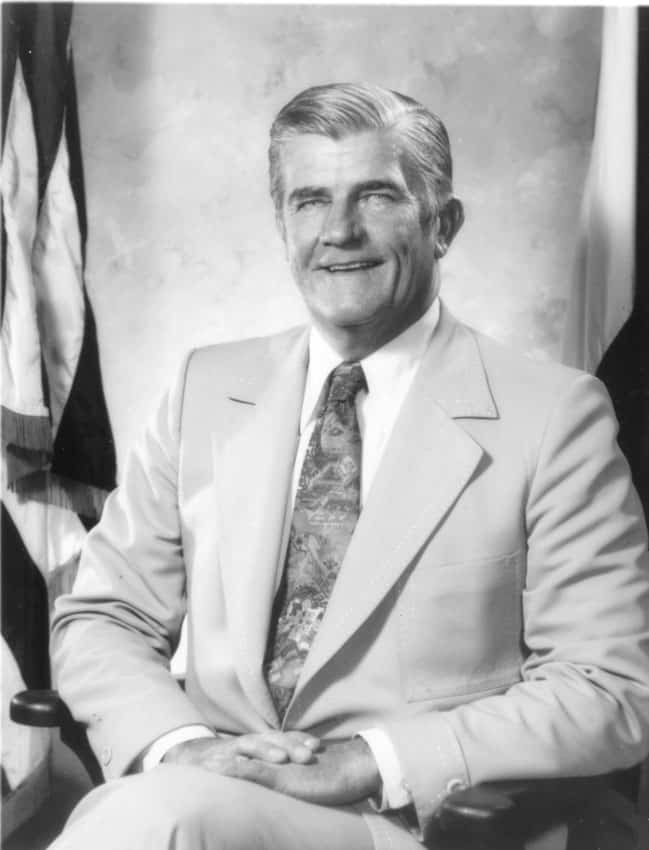The O’Keefe family archive, located in The University of Southern Mississippi (USM) University Libraries Special Collections, shares this prominent Mississippi Gulf Coast family’s stories through both physical and digital items that include awards, scrapbooks, family history, business, and political content from various members of the family who have held prominent roles in business, civic, and political life across successive generations.
The O’Keefe family archive focuses on Jeremiah Joseph “Jerry” O’Keefe III, his family, military service, family legacy and businesses, political career, and his philanthropy. Jerry was a fighter pilot during World War II, earning the status of “ace” and later awarded the U.S. Navy Cross, the Distinguished Flying Cross, the Air Medal, Gold Star, and in 2015, the Congressional Gold Medal for American Aces. After the war, he graduated from Loyola University in New Orleans and rejoined the family funeral home business.
O’Keefe had an especially far-reaching role in growing the family business and engaging in community activities along the Gulf Coast. Jerry served in the Mississippi State Legislature from 1959 to 1963 and as mayor of Biloxi from 1973 to 1981. He was a donor and fundraiser for social service organizations, schools, and museums, including the Walter Anderson Museum of Art and the Ohr-O’Keefe Museum of Art. In 1996, O’Keefe and his wife, Annette, established the O’Keefe Foundation. Following her passing, O’Keefe presented a generous donation to the Ohr Museum of Art in his wife’s name. In her honor, the Ohr Museum of Art was renamed the Ohr-O’Keefe Museum of Art.
Through a National Historical Publications and Records Commission (NHPRC) grant, Brennan Collins, a December 2023 Southern Miss graduate with a master’s in library and information science degree and an archival certificate, began working with this collection in 2023, recently completing the project. The NHPRC is a statutory body affiliated with the National Archives and Records Administration (NARA) whose mission is promotion of the preservation and use of the country’s documentary heritage essential to understand the nation’s democracy, history, and culture.
Collins’ work on the collection consisted of writing descriptions for the digital portion finding aids and the online exhibit that promotes the collection.
“Working on the collection provided an opportunity to use skills learning in classes,” Collins said. “The online exhibit project was the most fun. It provided an opportunity to feature information and images I thought were particularly interesting.”
Lorraine A. Stuart, head of Special Collections and Curator of Historical Manuscripts and Archives, is leading the two-year grant project. The purpose of the grant is to increase access to collections and will support processing, digitization, and development of finding aids for existing collections significant to the history and culture of Mississippi. The grant also provides multiple opportunities for hands-on materials preservation and presentation experiences for the University’s Library and Information Sciences and Humanities graduate students.




